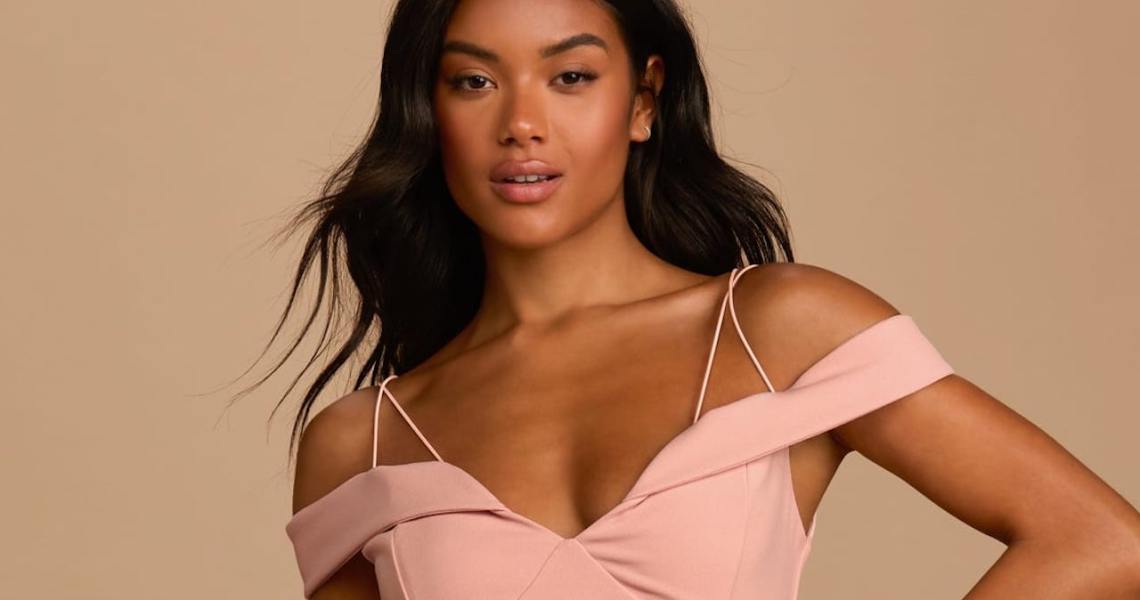Online retailer Lulus has always catered to a younger audience, and Christine Hunt, vp of brand marketing, said high school and college students are a big focus. Its latest campaign launching on Thursday, which targets the graduating college class of 2021, includes a TikTok activation fueled by a unique song.
The song was produced by Lulus and music agency Song Candy. Hunt hopes the song will take off on TikTok via graduating seniors featuring it in their videos.
It’s a strategy that has worked for Hunt before. In her former job as senior director of global media at E.l.f. Cosmetics, she led the creation of the iconic “Eyes, Lips, Face” song that went viral on TikTok. More than 5 million user-generated videos have been created using the song. Hunt is hoping that “Caps Off,” the song Lulus made with Song Candy, will have a similar impact.
Hunt cited her own experience at E.l.f., data from a Harvard study showing that audio is five times more memorable than visuals, and the rise of audio-focused platforms like TikTok and Clubhouse as reasons that branded music can be a boon to brands today. But she was careful to note a distinction between branded songs and a jingle, which can be limited in scope. Part of the reason the “Eyes.Lips.Face” song went so viral was that it worked well with brand and brand-adjacent content, but also stood on its own as a song that could be enjoyed outside of the brand context.
“There are some limitations with how you can get your song made into a sound that others can use on TikTok,” Hunt said. Brands often pay for an official branded hashtag challenge to get their video and song featured on the Discover page of TikTok, which is what E.l.f. did. But Hunt said Lulus isn’t paying TikTok for this campaign. Instead, it will be using influencers to promote the song and campaign. The song will be added to TikTok’s library of audio through those influencers’ videos.
“We’ve seen through our data and through third-party data that a lot of our audience has flocked to TikTok, especially over the pandemic,” Hunt said. “It’s an inclusive platform. It’s fun, it has a lot of levity. The next step was coming up with a campaign that matched what our audience there was already engaged with.”
Hunt and her team did research ahead of the creation of the song on what type of music is appealing to its Gen-Z demographic. They settled on a pop-punk anthem, after seeing that the hashtags #2000sthrowback and #poppunk had amassed a combined 2.3 billion views in the prior six months. Hunt said that, like her work with E.l.f., she’s keeping the initial investment in the audio strategy low, with the idea that if the song blows up, the company can quickly invest more in it. For example, it may record a longer version and release it on Spotify or branch into paid ads to increase its exposure.
Ad position: web_incontent_pos1
She said that both “Caps Off” and “Eyes.Lips.Face” started as short snippets, rather than full-length songs. But the latter was quickly expanded into a full-length song over a weekend and released in full on Spotify to capitalize on its popularity. It’s since been played more than 22 million times. She said Song Candy put the short version of “Caps Off” together in just three weeks and is prepared to expand on it if it sees a similar level of popularity.
Virality on TikTok is unpredictable, and it can happen with minimal investment.
“It’s such a great platform for organic marketing,” said Dylan Kim, CMO of bag brand Brevite. Several of the brand’s TikTok videos, filmed by Kim, have gone viral. “You’re always looking for virality, and sometimes, TikTok just blesses you with it.”
Hunt said she’ll be watching several key metrics to judge whether the campaign is a success. Rather than looking at the amount of revenue driven, which is better for performance marketing efforts like SEO and targeted ads, she said she considers “Caps Off” to be a top-of-the-funnel effort. Success will be measured by views, user-generated content using the audio, comments and shares.
“We’ve gone from a sound-off environment to a very sound-centric environment,” Hunt said. “With TikTok and Clubhouse and competitors like Twitter Spaces, there’s a lot of excitement in audio right now. So we wanted to figure out how to use audio in our own way, and music seemed like the perfect way to do that.”




